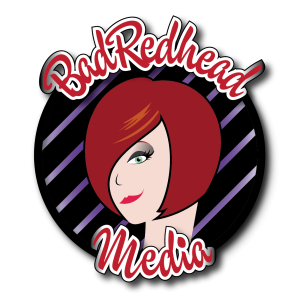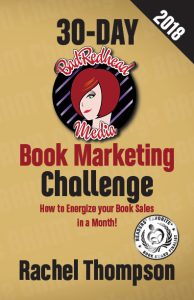Are You Really an Author? How to Kill Imposter Syndrome by guest @SmartAuthors
It’s crippling, isn’t it, the self-doubt and anxiety? That feeling you get when you tell someone you’re an author.
What a fraud. Who are you to call yourself an author?
Sure, you’ve written and published a book, heck it’s even got a few good reviews, but you’re not like a real author, not like J. K. Rowling or Stephen King. Why would anyone want to read your book?
Who are you to ask people to buy a book you wrote?
I’ll tell you who you are. You’re an author. Yep, I said it, you’re an author and you’re just going to have to learn to love the idea.
Those feelings of inferiority, of not being good enough? That’s good old imposter syndrome, and we’re going to kick that syndrome to the curb right now.
What is Imposter Syndrome?
According to Gill Corkindale’s post, Overcoming Imposter Syndrome for Harvard Business Review, ‘imposters’ believe they do not deserve success or professional accolades and feel that somehow others have been deceived into thinking otherwise. This goes hand in hand with a fear of being ‘found out.’ A tendency to attribute success to luck or to other external reasons and not their abilities is another clear indicator of imposter syndrome.
Imposter syndrome can affect anyone. When the term was first coined in 1978, it was thought to only affect women but subsequent studies have shown that imposter syndrome can trouble men and women equally and from all walks of life. Research has suggested that 70% of people will experience at least one episode of imposter syndrome in their lives.
Imposter syndrome even affects those who the rest of us would consider to be obviously brilliant, such as bestselling writers Neil Gaiman and John Green.
John Green once said: ‘People often use the phrase “literally the worst” colloquially, but I have on countless occasions felt that I am literally the worst writer on Earth and that I am a complete fraud. I feel like a fraud all the time, and I still don’t feel like I know how to write a novel, and at this point, I doubt I ever will.’
In case you’re not sure which John Green I mean, he’s the New York Times bestselling author of Looking for Alaska, An Abundance of Katherines, Paper Towns and The Fault in Our Stars. He is one-half of the vlogbrothers on YouTube and co-creator of educational series Crash Course. Yeah, that one. He’s doing okay. Across all his channels and along with his brother, he has a platform with around 10 million followers. But even he still feels like a fraud.
Honestly, one of the best ways to deal with imposter syndrome is to recognize that pretty much everyone has it, it’s completely normal and achieving greater success doesn’t make it go away.
This awesome anecdote from Neil Gaiman is sure to make you feel better too. It’s almost as if the more successful and deserving you are, the more of an imposter you feel.
The Reason You Feel Like a Fraud
The easiest way to overcome imposter syndrome is to stay in bed all day and set no goals for yourself.
If you’re the kind of person who likes to achieve things, you will probably feel tremendous guilt if you stay in bed all day. The point is though that if you set your sights low, you won’t feel that you’re undeserving of any praise because it’s unlikely that you’ll get any.
When you publish a book, however, you’re putting yourself out there. It’s a vulnerable place to be. For most authors, it’s a new experience, unlike anything they’ve had to deal with before and with a whole mix of emotions.
Becoming a published author is a big change, and with change comes a predictable cycle of emotion.
Don Kelley and Daryl Conner developed their Emotional Cycle of Change model in the mid-1970s. The cycle has the following five stages:
-
- Stage 1: Uninformed optimism
-
- Stage 2: Informed pessimism
-
- Stage 3: Hopeful realism (sometimes called the Valley of Despair)
-
- Stage 4: Informed optimism
-
- Stage 5: Completion
Here’s how it might look for a new author:
Stage 1: You’re excited to have finished writing your book and hit publish. You don’t yet know of the hard work to follow with marketing your book.
Stage 2: You start to feel some negative emotions about your book, especially if sales aren’t as good as you hoped. You may be frustrated with book marketing and anxious about how successful your book will be. This is when many authors give up on their books. Imposter syndrome may set in as you believe that you’re undeserving of any success and therefore you give up on your marketing.
Stage 3: There are still feelings of doubt but you’ve developed a marketing strategy and you’re getting into the swing of marketing your book.
Stage 4: You’re feeling confident and proud of your achievements.
Stage 5: You’ve reached your goal! This is an important moment to celebrate and own your success. Imposter syndrome is likely to be waiting behind the door, ready to tell you it was all down to luck or that it’s a mistake and you’ll get found out. Acknowledge the work you’ve put in that got you to this point.
BONUS DOWNLOAD: Recognizing imposter syndrome is one thing, but do you have a plan to deal with it? I’ve created a FREE worksheet to help you define why you write and what you want to achieve, so you can remind yourself of your strengths when doubt creeps in. (Click here to get your copy.)
Kill Imposter Syndrome Now
Life begins at the end of your comfort zone. ~ Neale Donald Walsch
But it’s precisely when we step out of our comfort zone that imposter syndrome sets in.
The fact that you experience imposter syndrome proves that you are doing something challenging and something you care about.
To overcome feelings of self-doubt and inadequacy you need to recognize what’s happening and that it is normal and expected. Take steps to learn more about what you don’t know and keep taking action, keep moving forward, even if what you’re doing isn’t perfect. Perfect is subjective anyway.
You will only truly fail if you put your pen down, switch off the computer and give up on your writing. You may never be able to completely stop the negative thoughts that pop into your head when you’re trying to do something worthwhile, but you can choose to ignore them.
Don’t give imposter syndrome any power and never let it stop you.
Of course, there are times when we’re writing we have nagging thoughts that a passage or character or plot twist simply isn’t working and we need to listen to that voice that is trying to help us produce our best work.
But that one that says everything you write is rubbish, no one is ever going to buy your books, nobody is interested in what you have to say? You need to slam the door shut on that voice.
Nobel Laureate Maya Angelou once said: ‘I have written eleven books, but each time I think, “Uh oh, they’re going to find out now. I’ve run a game on everybody, and they’re going to find me out.’” What a tragedy it would have been if she had listened to those thoughts and allowed her fear of being found out stop her from writing.
10 steps to Kill Imposter Syndrome as an Author
-
- Remember your ‘why.’ What’s your motivation for writing and publishing? Remember that when the going gets tough and feelings of inadequacy make you want to give up. Is your end goal more important to you than the fear you feel? Which one will you focus on?
- Learn more about writing/publishing/marketing depending on which stage of the author process you’re at. Focus on what you’re learning rather than on how well you’re performing.
- Find a supportive network you can learn from and share worries with – this could be a real-life writing group or an online group on a social network. It doesn’t even have to be a group, but author friends you chat with on Twitter or Facebook.
- Do not compare yourself with others. Seriously, don’t do it! There will always be people further ahead than you (they probably began earlier, so what, you’re ahead of that person who hasn’t started yet), always people doing things better than you (it could be luck, or something else, but it’s life, there’s always someone doing things better). Trying to ‘beat’ them just isn’t going to work. Have a look at them, learn what you can and then move on. Focus on you, what you have to offer and what only you can share based on your experience. There is only one you, and ‘you’ is all you can ever be, so be the best version of yourself and make the best of what you’ve got.
- Acknowledge your weaknesses and see them as opportunities to learn more.
- Value your strengths. Show respect for yourself.
- Keep taking action. It doesn’t matter if you’re uncertain whether it’s right or not, just keep moving.
- Accept you don’t need to be perfect. As a new author, no one expects you to know everything about being an author. Don’t feel like you need to know everything, it’s ok to ask questions.
- Celebrate every small win (another review received, email subscriber added to your list or chapter written). Write it down and put it in a jar. Go to the jar anytime you feel low and need a reminder of how far you’ve come.
- Be kind to yourself. Don’t dismiss your success by attributing it to luck or anything other than your hard work and commitment. Even with a team of editors and a publicist, your book is still down to you and your vision.
 Belinda Griffin is a book marketing coach helping indie authors achieve greater book exposure and sales without experiencing overwhelm or burn out. A former journalist, content marketer and freelance writer, Belinda now runs SmartAuthorsLab where she helps self-published authors learn about book marketing, build their author platforms and make their books more visible, so readers can find them, buy them and read them. Grab her FREE guide Are you making these 10 book marketing mistakes to check your book marketing is on track. Follow her on Twitter @SmartAuthors.
Belinda Griffin is a book marketing coach helping indie authors achieve greater book exposure and sales without experiencing overwhelm or burn out. A former journalist, content marketer and freelance writer, Belinda now runs SmartAuthorsLab where she helps self-published authors learn about book marketing, build their author platforms and make their books more visible, so readers can find them, buy them and read them. Grab her FREE guide Are you making these 10 book marketing mistakes to check your book marketing is on track. Follow her on Twitter @SmartAuthors.
For a more detailed plan for developing your book marketing, purchase Rachel’s new book,
The BadRedhead Media 30-Day Book Marketing Challenge now on Amazon!
Readers’ Favorite Silver Award Winner!
[blurbit]





You’re a what? How many times I have endured that response when people ask me how I earn my crust.
“An author eh, you mean books and stuff?”
“Yes, short stories and flash fiction actually.”
“Are you famous?”
“Not yet but I’m working at it.”
“Oh right, okay.”
It’s about now when the conversation dries up, as the inquirer doesn’t want to hurt my feelings by telling me they have never heard of me. No problem, most of the world hasn’t. But you never know. No one had heard of Stephen King or JK Rowling either till their perseverance paid off.
Absolutely, Kevin, you have to put other people’s negativity and your own questioning mind to one side and just keep on keeping on! No one ever got anywhere by giving up 🙂
Oh, what an excellent post. Thank you.
Thanks, pleased you found it helpful!
This is a dynamic pep rally for indie authors like me. There are so many significant points. Kudos! and thanks for the good thoughts.